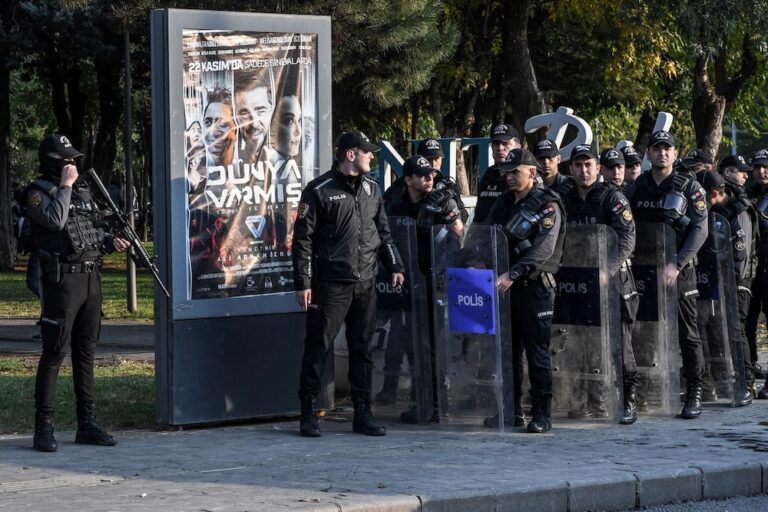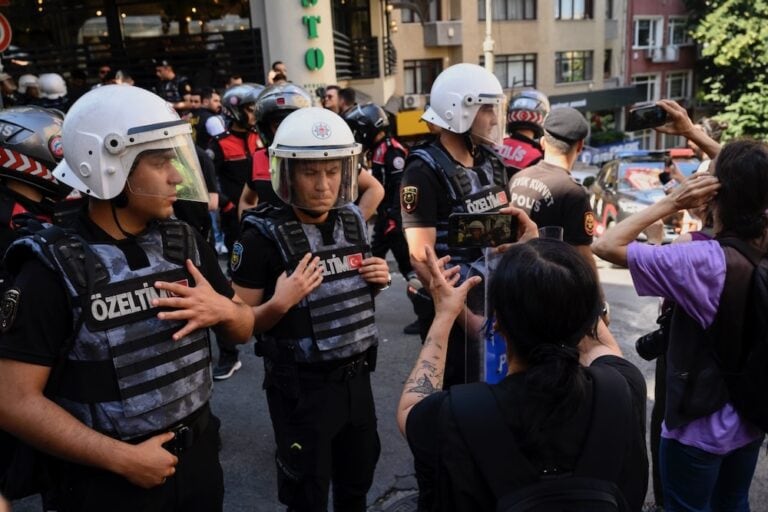The journalists are being tried based on an interview that was conducted with the head of the steering council of the Democratic Confederation of Kurdistan (KCK).
(BIANET/IFEX) – 3 September 2010 – A case against Filiz Kocali and Ramazan Pekgoz, executives with the Kurdish “Gunluk” newspaper, is about to reach its final stage. The journalists are being tried based on an interview that was conducted with Murat Karayilan, the head of the steering council of the Democratic Confederation of Kurdistan (KCK), the umbrella organisation that includes the outlawed Kurdistan Workers Party (PKK).
The trial continued at the Istanbul 13th High Criminal Court on 2 September 2010. Lawyer Ozcan Kilic presented the defence for Kocali and Pekgoz, who did not attend the hearing. He said that the interview published in the newspaper has to be accounted for as part of the public’s right to access information on different ideas.
The prosecutor in the case had previously presented his final plea and demanded punishment of the defendants in accordance with Article 7/2 of the Anti-Terror Law (TMY) on “spreading propaganda for an illegal organisation”. Prosecutor Hüseyin Ayar reiterated the same request at the 2 September hearing. Pekgoz and Kocali are facing up to seven and a half years in prison.
Kilic referred to Article 10 of the European Convention on Human Rights which guarantees the right to hold and express opinions, including the people’s right to be informed. He requested that his clients be acquitted.
“Gunluk” newspaper owner Ziya Cicekci is also being tried as part of the same case. Judge Omer Diken postponed the continuation of the trial to 23 November.
In its 7, 8 and 9 August 2009 editions, “Gunluk” published the interview in three different sections entitled “We did what Hasan Cemal wanted”, “I completely agree with Yasar Kemal” and “If the state would take one step we would take two”. On the basis of the interview, the public chief prosecutor’s office pressed charges of “spreading PKK propaganda”. Furthermore, the charges were brought forward because statements in the interview stemmed directly from a member of the organisation.


